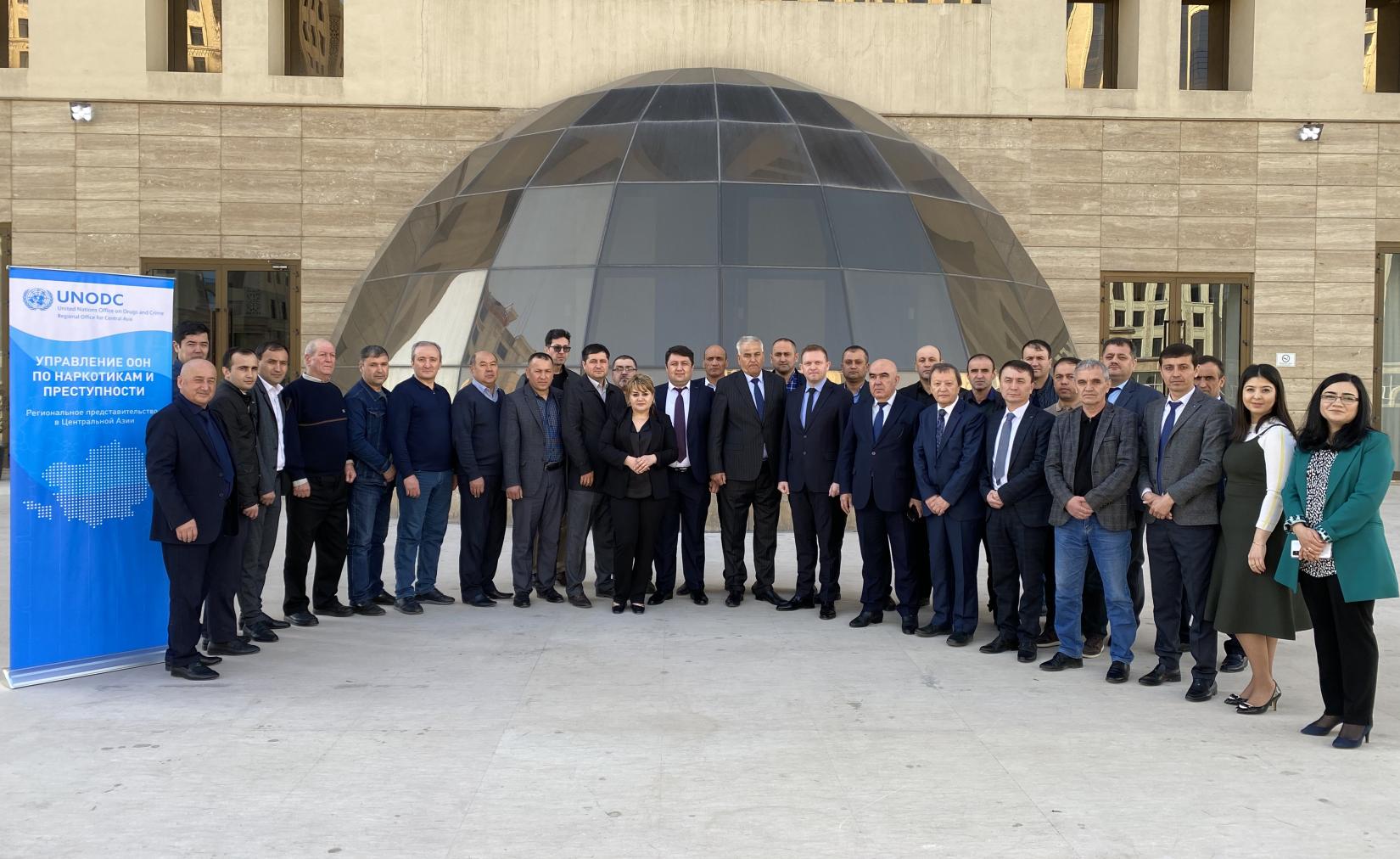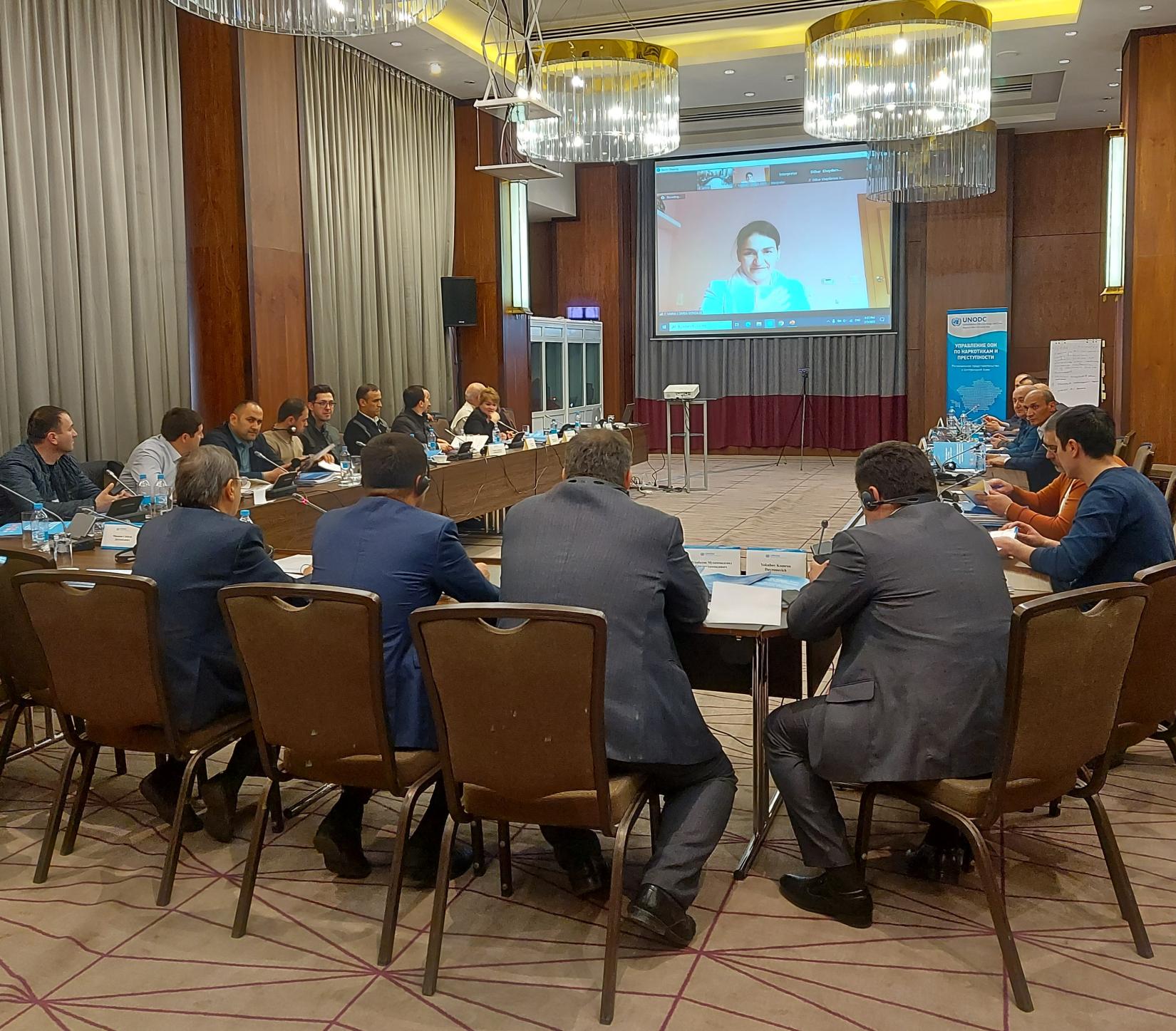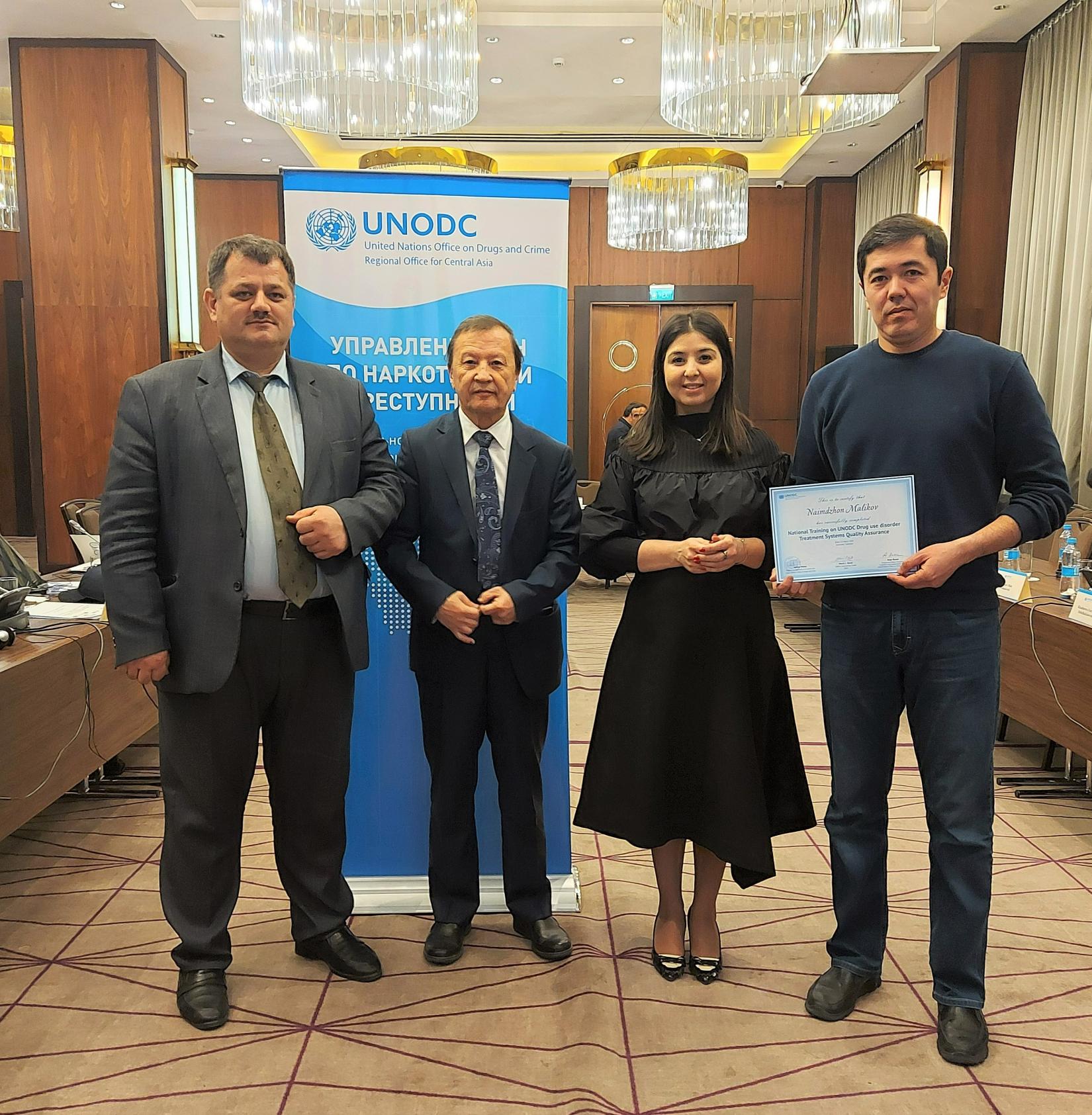UNODC strengthens the capacities of Tajik addiction professionals in drug treatment standards and quality assurance tools
03 March 2023
On 2-3 March, UNODC conducted a national training on drug use disorder treatment systems quality assurance in Dushanbe, Tajikistan.

The event brought together 29 experts from the Ministry of Health and Social Protection of Population of the Republic of Tajikistan (MHSPP), republican and regional clinical drug addiction centers under MHSPP, the National Drug Addiction Monitoring and Prevention Center under MHSPP, and UNODC representatives.
The training aimed to increase the capacity of drug addiction professionals in the development of the national quality assurance system standards in line with the UNODC-WHO International Standards for Treatment of Drug Use Disorders and discuss the strategy of their implementation.
Mirzoali Rajabzoda, the Head of the Department for the Organization of Medical Services and New Technologies of MHSPP, highlighted Tajikistan’s comprehensive efforts in combating drug trafficking and assessing and addressing drivers that result in the increase of drug abuse. “The UNODC trainings add value to our country’s efforts and measures in these areas. Today’s training will enable key players in the drug treatment system to make the drug abuse treatment services more effective by bringing them in line with international standards and best practices of evidence-based medicine,” he said.
“During the training, the participants will have a unique opportunity to discuss important issues related to the development and institutionalization of a drug treatment services quality assurance mechanism. The introduction and implementation of this mechanism will improve the quality of drug dependence treatment in Tajikistan,” said Mustafa Erten, Head of the UNODC Programme Office in Tajikistan, in his opening remarks.
The training was delivered by Maria J. Zarza Gonzalez, UNODC international trainer from Spain and Naimdzhon Malikov, narcologist from the Republican Clinical Narcology Center named after Professor M. Ghulomov under MHSPP.

Upon completion of the trainings, the participants were awarded certificates. They noted the high relevance of the training for their day-to-day job.
“During the training, specialists, having received useful information, took part in group work to assess the existing drug use disorder treatment system in the context of their regions and at the national level, thereby conducting a review and brief analysis of the treatment services. It should be noted that such trainings are highly important for us. They will improve the quality of medical care, help to plan the treatment, will be the basis for conducting quality monitoring and evaluation of the availability of services and service providers for the treatment of drug use disorders,” noted Naimdzhon Malikov.
The training was conducted within the UNODC global project GLOJ71 “Treating drug dependence and its health consequences: Treatnet II” funded by the U.S. Department of State’s Bureau of International Narcotics and Law Enforcement Affairs (INL), in collaboration with Sub-programme 3 “Addressing drug use, increasing treatment of drug use disorders and preventing HIV/AIDS” of the UNODC Programme for Central Asia 2022-2025 and the UNODC Prevention, Treatment and Rehabilitation Section.

For further information, please contact:
Nurangez Abdulhamidova
Communication and External Relations Officer
UNODC Regional Office for Central Asia
Email: nurangez.abdulhamidova[at]un.org


